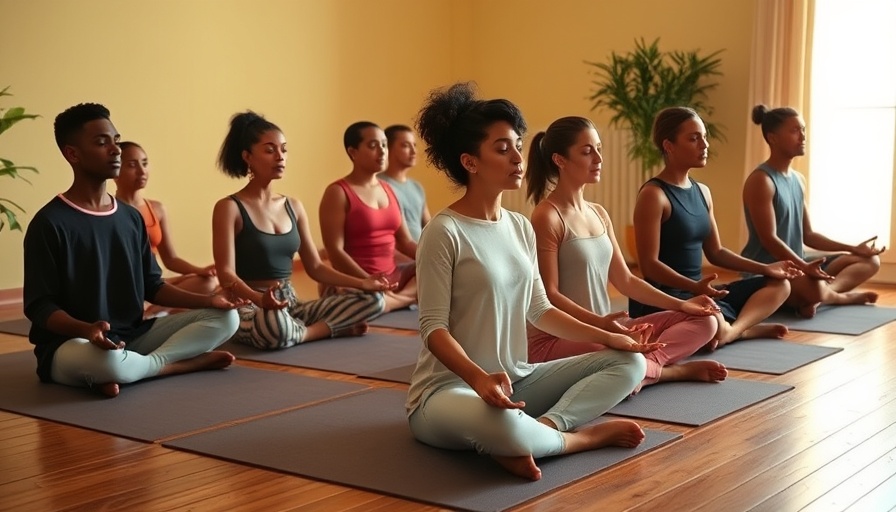
Understanding Mindfulness: More Than Just a Buzzword
Mindfulness has become a commonly discussed topic in our fast-paced world, yet many people still grapple with what it truly entails. It is often misconstrued as being simply a meditative practice, when in fact, mindfulness encompasses a broad spectrum of practices, both formal and informal. In this article, we will dive deeper into these two types of mindfulness and explore their practical applications in daily life.
What Is Formal Mindfulness Practice?
At its core, formal mindfulness practice involves engaging in directed meditation sessions. These structured practices might include techniques such as guided meditation, body scans, or focused breathing exercises. They offer a dedicated time to hone the mind's focus, creating a conducive environment for deeper reflective thinking. For beginners, there are various options available to ease into formal mindfulness, such as:
- A Five-Minute Meditation to Develop Better Focus
- Loving-Kindness Meditation for Beginners
- A Simple Practice for Regulating Stress in the Body
- 12 Minute Meditation: A Mindful.org Podcast
The essence of formal mindfulness is the commitment to a dedicated session of meditation, where distractions are minimized. This focus helps cultivate a stronger sense of presence, a skill that, when practiced regularly, has shown significant benefits for mental health and emotional well-being.
Exploring Informal Mindfulness: Bringing Awareness into Everyday Life
On the flip side, informal mindfulness is about integrating mindful awareness into daily activities without setting aside special time for meditation. It could involve the simple act of brushing your teeth, walking the dog, or even engaging in a conversation. What matters is the quality of attention you bring to these moments. Everyday experiences can become profound opportunities for mindfulness if you practice being fully present. Here are a few ways to incorporate informal mindfulness into your routine:
- What Makes a Conversation Mindful?
- 5 Simple Mindfulness Practices for Daily Life
- Bring Mindful Movement to Your Exercise Routine
The practice of informal mindfulness helps anchor us in the present, showing us that mindfulness isn't limited to quiet moments of reflection; it's also about fully engaging with life as it unfolds.
Mindfulness Techniques to Consider
Whether you lean towards formal practices or prefer an informal approach, there are numerous mindfulness techniques that cater to varied preferences:
- Mindful Breathing: Count and focus on your breaths to facilitate calmness.
- Body Scan Meditation: Cultivate awareness of different body parts to reduce stress.
- Mindful Eating: Savor each bite during meals to enhance your connection with food.
- Self-Compassion Exercises: Engage in practices designed to nurture kindness toward oneself.
Incorporating these practices into your life can lead to profound benefits such as reduced anxiety, improved emotional regulation, lingering happiness, and increased overall well-being.
The Benefits of Mindfulness: Why It Matters
The advantages of practicing mindfulness are extensive. Numerous studies have shown its effectiveness in managing stress, anxiety, and depression. Mindfulness promotes emotional resilience, improves focus, and fosters better relationships. As we navigate life's challenges, the ability to cultivate a mindful state can be transformative. To take these benefits further, consider how consistently integrating both formal and informal practices can deepen your practice. Making mindfulness a part of your daily routine can reinforce the skills acquired in formal sessions, enhancing your ability to remain present even during challenging moments.
Common Misconceptions About Mindfulness
It’s crucial to debunk some prevalent myths surrounding mindfulness as well. Some think it requires you to empty your mind completely or stop thinking altogether. Others view it as merely a relaxation tool. In reality, mindfulness is about noticing and accepting your thoughts and feelings without judgment. It is a freely accessible practice that anyone can adopt regardless of age or lifestyle.
Actionable Insights: Steps Towards Mindfulness
To effectively integrate mindfulness into your life, consider the following actions:
- Set aside a few minutes each day for a formal meditation session.
- Practice informal mindfulness during routine tasks, such as washing dishes or exercising.
- Join guided mindfulness exercises online or via apps to enhance your skills.
- Stay consistent with your practice to reap long-term benefits.
By incorporating these actionable insights and recognizing the distinct yet interconnected nature of formal and informal mindfulness, you can cultivate a practice that evolves with you.
Conclusion: Your Mindfulness Journey Starts Now
Mindfulness is not merely a practice; it is a way of life that offers sustaining benefits for mental, emotional, and physical health. As you navigate this journey, remember that whether through structured meditation or informal awareness, every moment spent in mindfulness counts. Start today by exploring different techniques that resonate with you and witness the transformation in your daily experiences.
 Add Row
Add Row  Add
Add 




Write A Comment